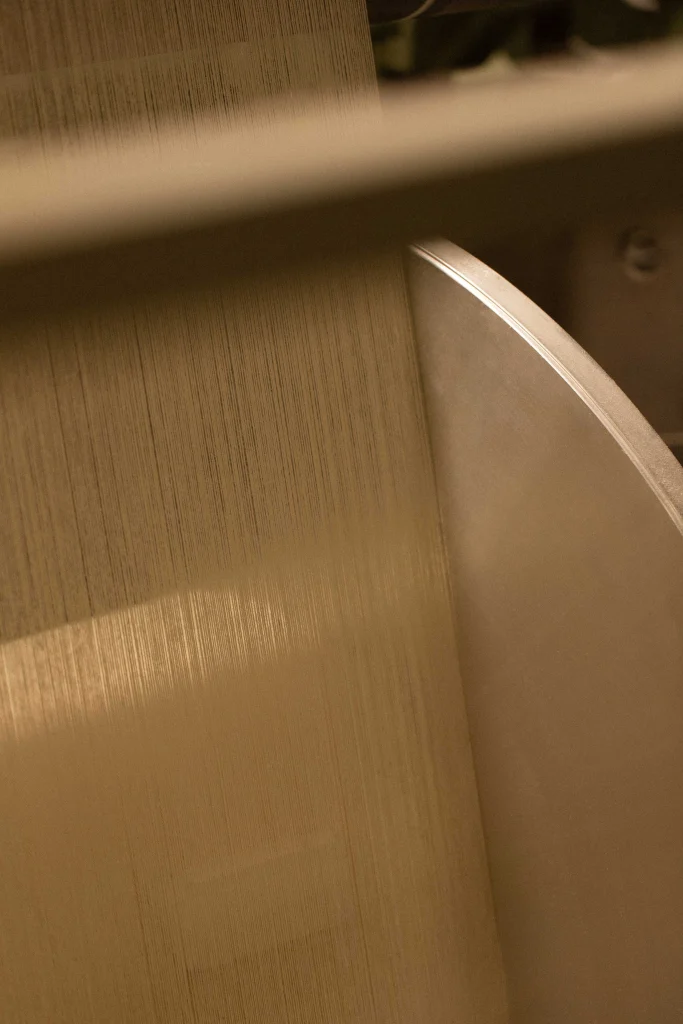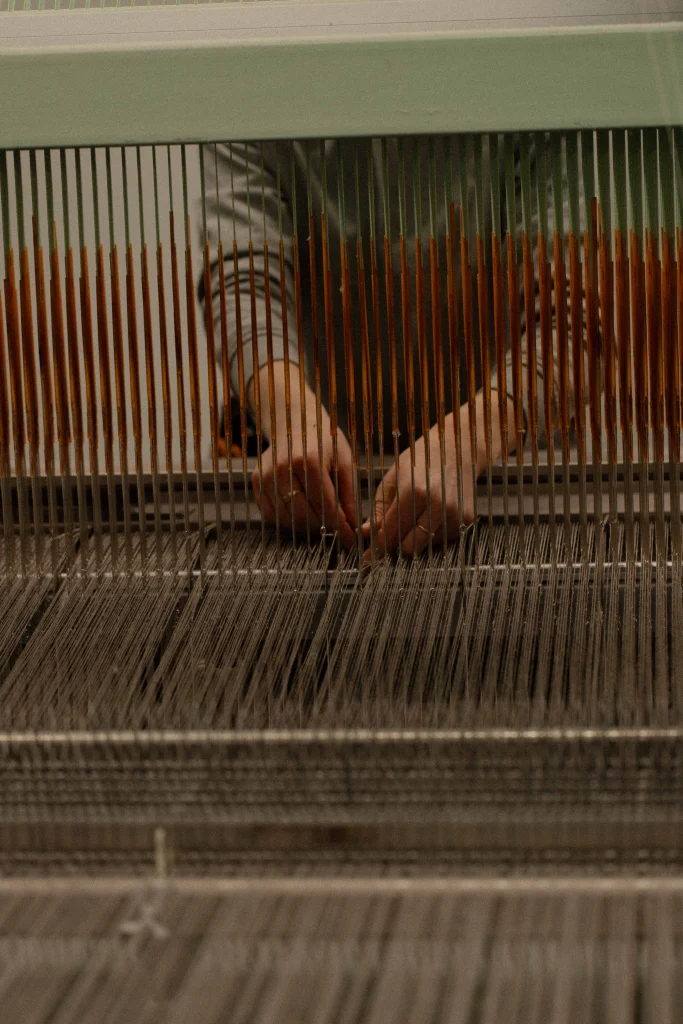
RESPONSIBILITY MANIFEST
- We have our very own weaving mill in Lapua, western Finland. That is where we manufacture our products from yarn, sometimes even from fibre, to a finished product. This enables us to design our products and processes while keeping the ecological footprint as small as possible. We care about our employees the way we care about our family.
- Our main raw materials, such as linen and wool, are certified natural materials. We use 100 percent European linen certified by Masters of Linen. We utilise local Finnish sheep wool and collect it from farms ourselves
- Together with top designers, we design products that stand the test of time. We are constantly developing new techniques and looking for new innovations. We are willing to put effort into making sure weaving skills are preserved to future generations.
OUR MATERIALS
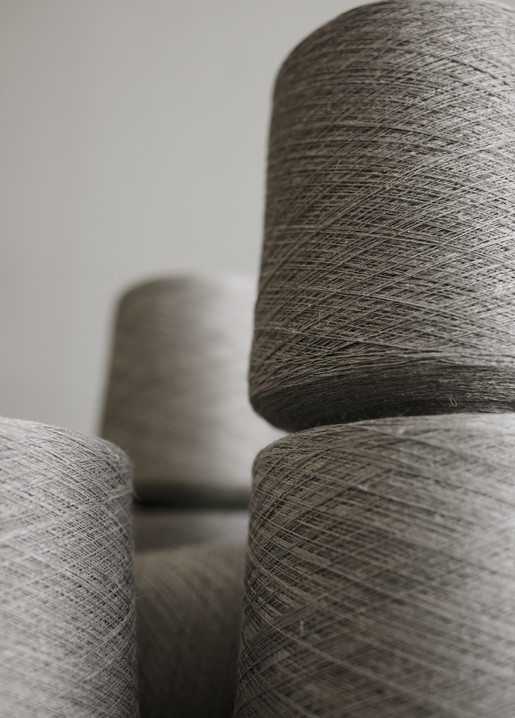
LINEN – RESPONSIBILITY FROM FLAX FIELD TO FABRIC
We simply adore linen. The linen we use is long fibred linen that is grown, spun and dyed in Europe. Not only is linen durable and feels pleasant to the touch, it is also one of the most environmentally friendly natural fibres.
Linen is grown in central Europe using only rain water. There is no need for irrigation nor is there much need for fertilisers either. It also grows fast – in one hundred days it reaches the height of one metre.
100 %
- of the linen can be used. It is also a completely
biodegradable material. There is no waste. - of our linen fibre comes from EU
- of our linen yarn is dyed in EU
Lapuan Kankurit is committed to using only traceable European linen. We report our use of linen every year to Masters of Linen CELC organisation.
SPINNING AND DYEING MILLS
We prefer working with European spinning and dyeing mills which we know and have visited. We dye part of our yarn in Finland. We cooperate only with certified operators who share our values, adhere to our Code of Conduct and use materials that are traceable and verifiable. We utilise also plant dyes for dyeing of Finnish sheep wool.
Did you know?
Our linen towels are light because linen is very absorbent. The less raw material is used, the more natural resources are saved. In addition, energy is saved in both logistics as well as in manufacturing.
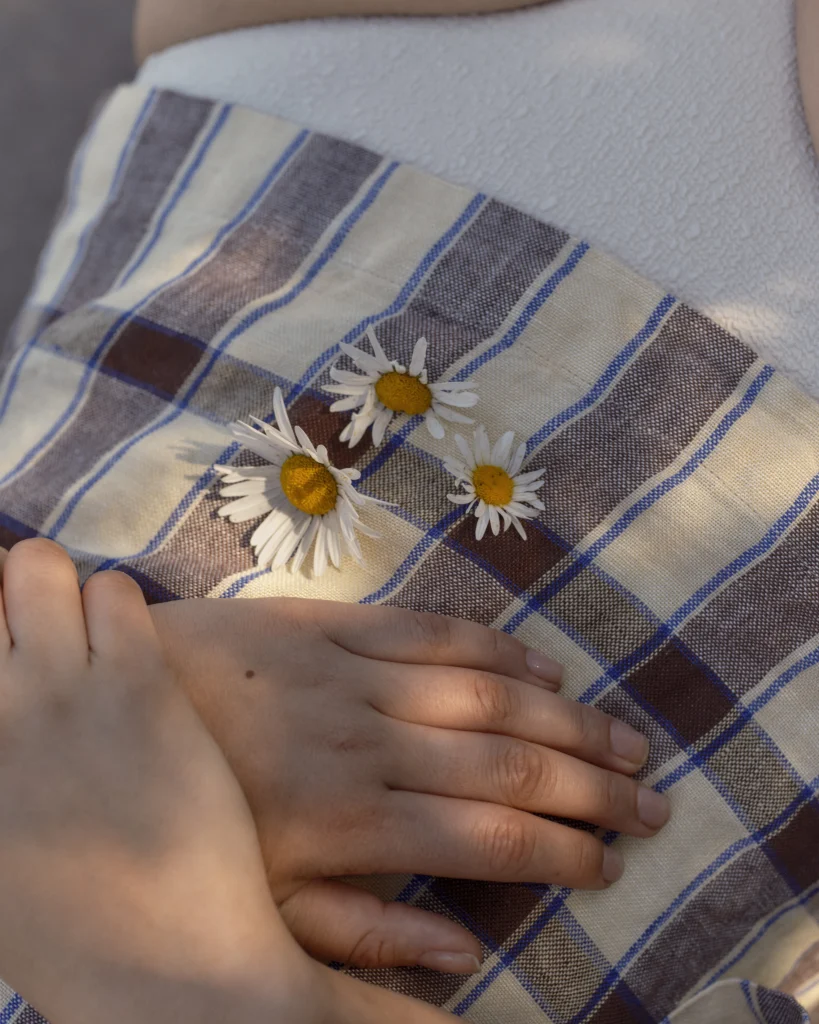
MASTERS OF LINEN – GUARANTEE FOR QUALITY AND TRACEABILITY
We are a proud member of the Masters of Linen family. The Masters of Linen label is granted to linen products manufactured using linen yarn grown and spun in an eco-friendly manner in France, Belgium or the Netherlands. The linen must meet the strict requirements set for growing, further processing and textile production. Masters of Linen guarantees that the origin of the linen is 100 percent traceable. Spinning and weaving mills commit to adhere to the strict criteria regarding production and purchases. Yearly inspections are conducted to certified companies to ensure criteria are duly adhered to.
Colour from Nature
Since we are the ones pulling the strings, so to speak, we can utilise plant dyes in our wool yarn production. The first naturally
dyed wool products were introduced to our collection in 2022. We acquire sky blue colour from the woad grown in Nivala, Finland, and deep yellow from the coffee production surplus from Paulig. We continue to discover and develop new
natural dyes with our suppliers.
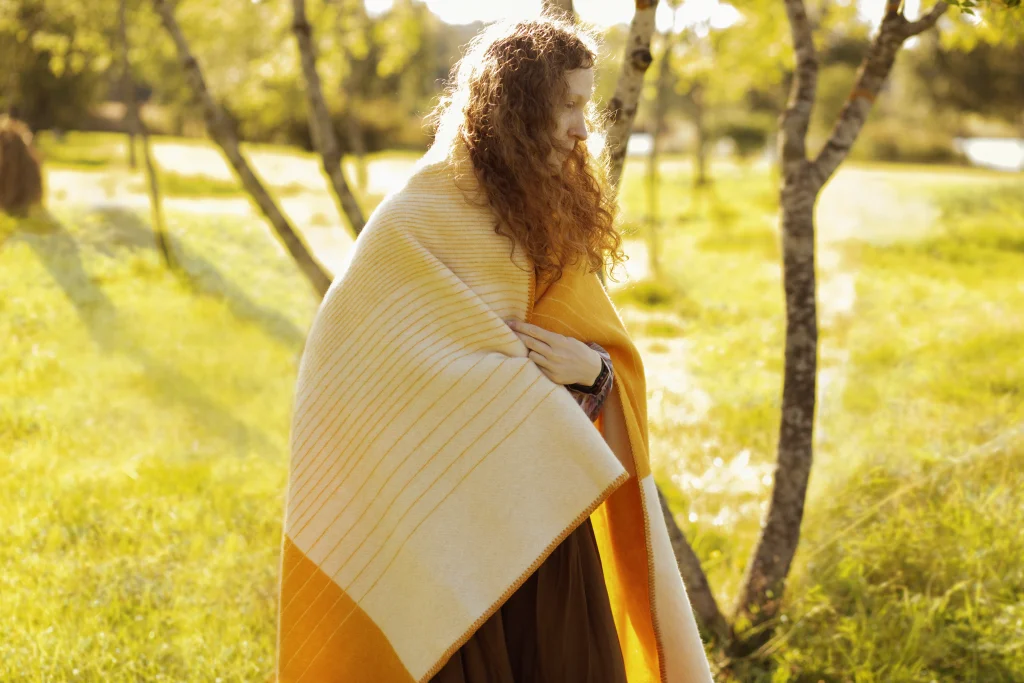
WOOL
We have made significant investments in order to be able to produce wool yarn from Finnish sheep. Some of it usually ends up in the landfill. Nowadays we collect it ourselves from farms within a 300-kilometre radius around Lapua. With our ERP and MES systems we can trace batches of fibre all the way to finished products. In addition, we purchase wool fibre and partially finished yarn from explicitly certified suppliers.
The quality and characteristics of wool vary according to the breed of sheep, their living conditions and natural environment. In order to achieve the best possible result, we acquire our wool from different parts of the world: Finland, the Nordic countries, New Zealand, Australia, South America and South Africa.
We only buy finished wool yarn from spinning mills that purchase wool fibre from certified suppliers and adhere to our Code of Conduct. We aim to focus on using wool fibres that come from countries emphasising the welfare of animals.
We do not condone animal abuse and we procure solely wool that is certified and mulesing-free. Most of our wool yarn is spun in EU.
We launched our first collection made fully of Finnish sheep wool in Autumn of 2023. In Lapua, we built a unique wool textile finishing plant that operates continuously. The building is as energy and water efficient as possible due to geothermal heating and heat recovery. We have also built a wool spinning mill in Lapua, which will be commissioned later.
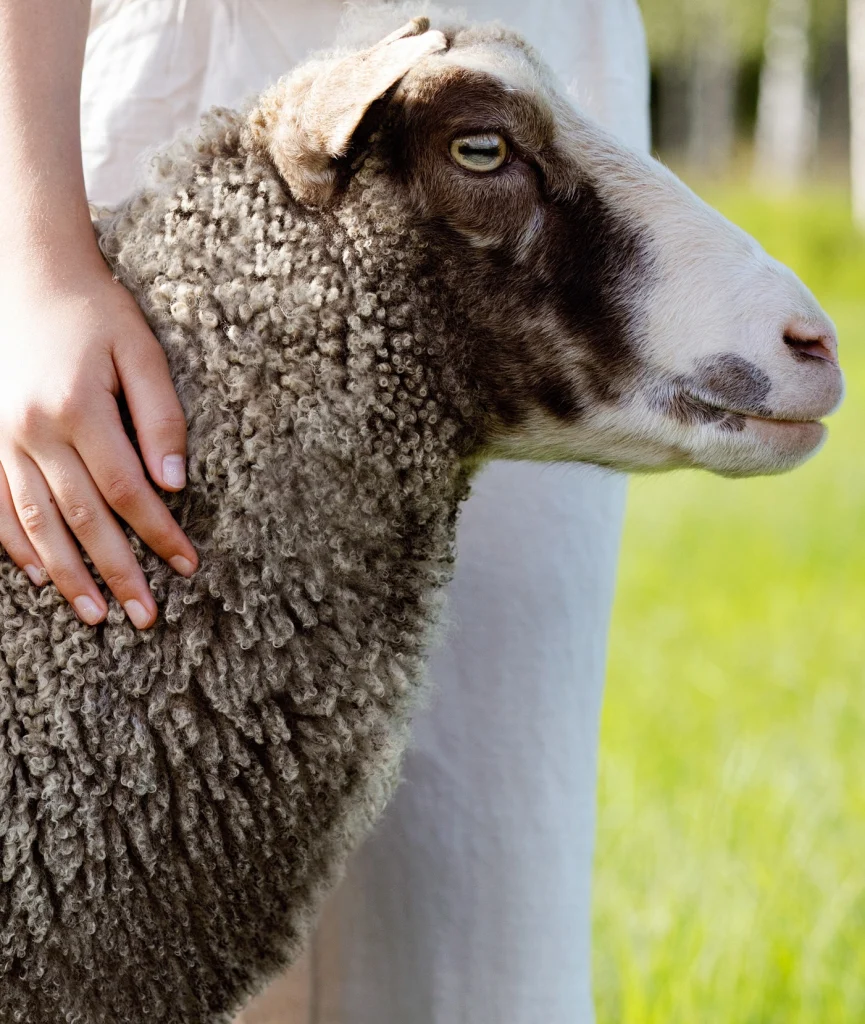
Together with ProAgria, we have created a set of criteria for healthy wool, which promotes responsible wool production as well as animal welfare in Finland in particular. It is based on three themes.
1 HEALTHY SHEEP
The wool comes from an animal that has been cared for in a safe environment. It has been provided with space to roam, the freedom to behave in speciestypical manner and outdoors access. Each operator has a written welfare plan. Both animal welfare legislation and international guidelines are followed, and neither mulesing nor tail docking has been performed.
2 HEALTHY ENVIRONMENT
The farming, production and further processing of the wool is done with consideration for the soil, the environment and their diversity. Each operator has a cultivation plan which takes into account the environment, carbon sequestration, vegetation cover optimisation, nutrient leaching as well as erosion control.
3 HEALTHY COMMUNIT Y
The working conditions of the people farming and processing the wool are safe and promote health, discrimination is not practiced, and the salary provides basic security. The working conditions adhere to the International Labour Standards.
In 2023, 11% of our wool textiles contained Finnish sheep wool. We are determined to keep increasing that number.
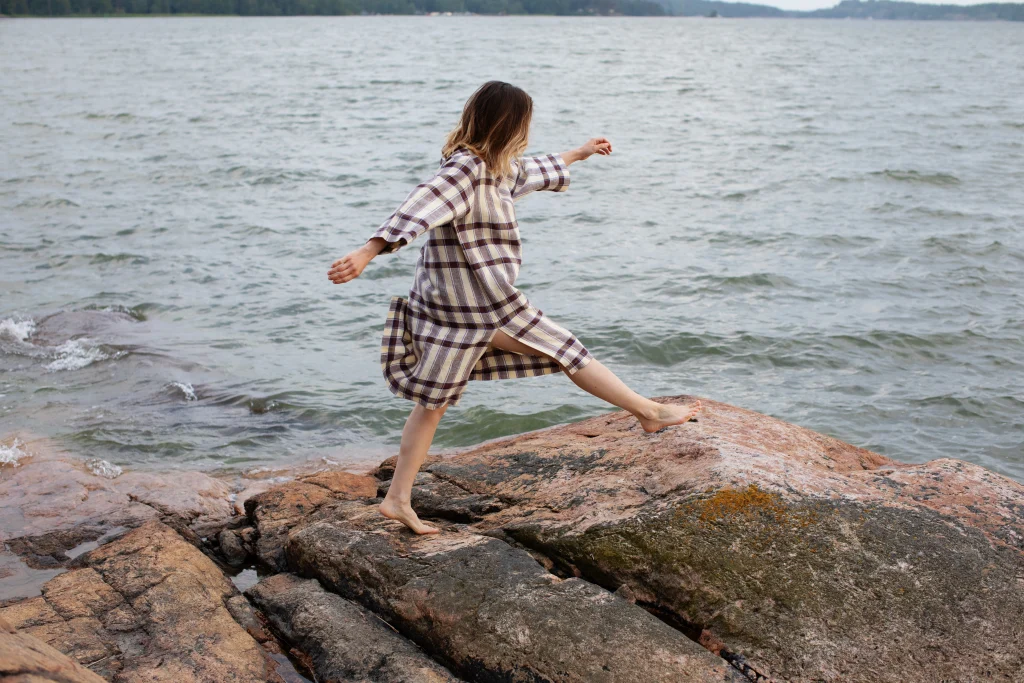
OTHER NATURAL MATERIALS WE USE
We use solely natural materials. In addition to linen, wool and bio-organic cotton, we use Tencel which is a lyocell fibre made from pulp. We have begun to replace some of the cotton in our production with Tencel. It is a more environmentally friendly alternative to cotton.
Nearly 70% of our products are monomaterial, meaning they only contain one material. Monomaterial is easy to recycle back into raw material at the end of its life cycle, because it does not need to be separated from other fibres. All of our linen-blend materials are cellulose-based fibres and do not contain elastane or polyester. The only synthetic fibre we use is extremely small amounts of nylon in the structure of mohair yarn.
Did you know?
Less washing is better for the environment. It’s easy to remove stains from linen even in a 40°C wash whereas the best way of cleaning wool is airing it outside in the freezing weather. Airing a garment reduces the need of washing it often.

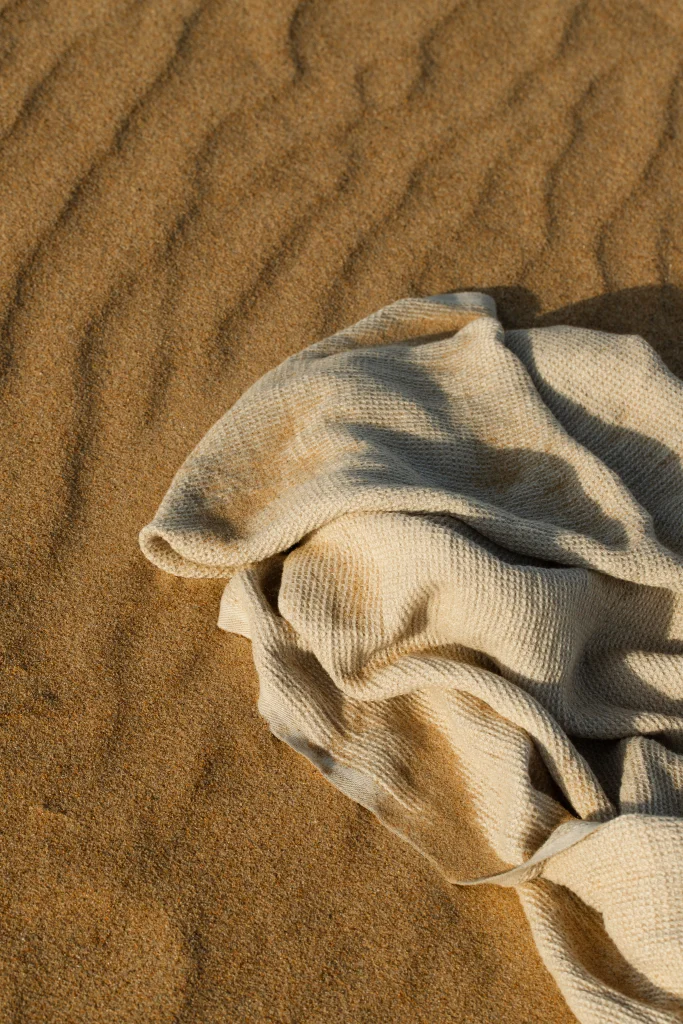
TENCEL
Tencel® is a registered trademark of an Austrian company Lenzing for the lyocell fibre it manufactures. 100 percent of Tencel comes from EU. It is a regenerated cellulose fibre with an environmentally friendly manufacturing process. It is a closed loop process meaning that within the fibre production the same chemicals get used and reused again and again. Tencel is made from pulp. Its production is FSC certified guaranteeing that also the forestry industry related to product manufacturing is responsible. 14% of our textiles are made out of Tencel-linen-cotton..
COTTON
In 2023, 78% of the cotton we used was certified bio-organic cotton adhering to the OEKO-TEX® STANDARD 100*. In 2022, that figure was also 78%. Our objective by 2025 is to use solely certified bio-organic cotton. 18% of our textiles are made out of linen-cotton.
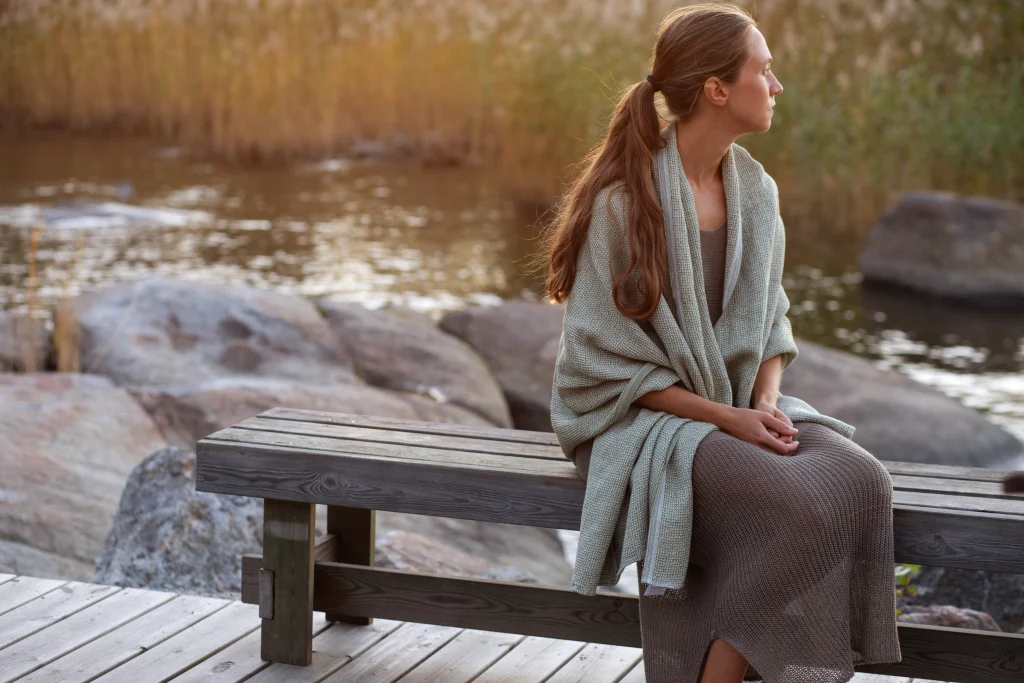
ENVIRONMENT NOW, TOMORROW, FOREVER
Since we make our livelihood from nature, we want to commit to environmentally responsible practices. Our goal is to become a carbon neutral operator and we are constantly working towards that goal.
In 2023, our turnover decreased by 9% due to the challenging global situation. The amount of woven metres decreased slightly. There is increase in import and transportation, and a significant part of our emissions result from transportation of raw material and products. The environmental impact of our production is low consisting mainly of heat production, use of energy and production of process steam to be used by the finishing facility.
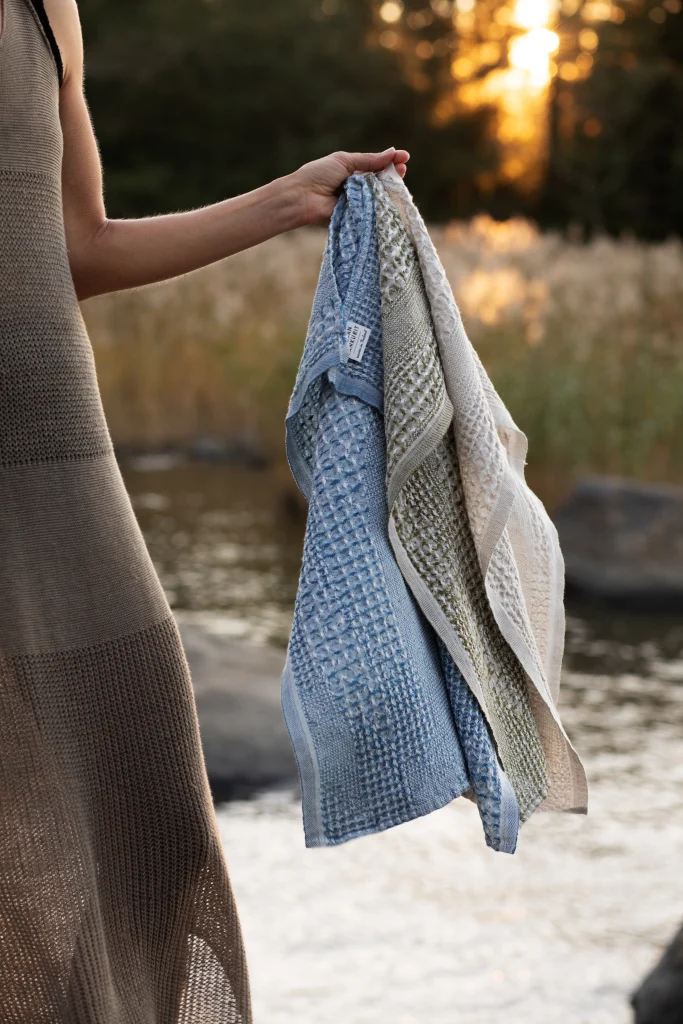
USE OF ENERGY
We utilise wind power. However, our own carbon dioxide emissions have risen by 37%, amounting to 4460 CO2-eq in 2023. This was due to the fact that we introduced an entire new production facility and product line. On the other hand, electricity consumption decreased by 35% due to the new building and energy solutions.
-We utilise geothermal energy in our new production plants. We have also made preparations to utilise solar energy.
– Heat energy is produced by a district heating plant utilising mostly woodchip and other by-products from sawmill industry.
– Greenhouse emissions caused by business travel increased with trips to Japan, amounting to 18309 kg CO2-eq in 2023.
– Our production uses a heat recovery system.
– We have shifted from light fuel oil to propane in our production due to the new, more energyefficient technology.
USE OF WATER
– The use of water per weaved metre was 10,5 litres per metre. The increase from the previous year is mainly attributed to the introduction of the new wool collection. Besides wool textile production, water is used in the finishing of linen fabrics to improve their quality and thus extend their life cycle.
– We have invested in a new finishing facility that requires the use of water. However, our own finishing facility allows us to monitor, develop and take responsibility for the eco-friendliness of this entire process ourselves.
IN 2023, OUR CARBON FOOTPRINT DECREASED BY 17%
RECYCLING
- We are exploring the recycling of discarded wool as part of our Finnish wool development project.
- We tested fibre tearing in 2023.
- Some of our developments include the sorting and use of linen waste (e.g. using the material in absorption products). We are also recycling cardboard boxes and the polypropylene used in transportation of yarn reels.
- Encore Pohjanmaa, our partner in recycling, is responsible for the recycling of the polypropylene used in transportation of yarn reels.
- Our stores receive discarded linen and wool textiles manufactured by our company.
USING LESS PACKAGING
- We continue cooperating with RePack.
- We are recycling our cardboard. The amount of cardboard packaging decreased by 18% in 2023. The amount of plastics increased slightly. We are continuously looking for environmentally friendly packaging alternatives.
- We are members of Finnish Packaging Recycling RINKI. We are actively monitoring our use of packaging materials. We are members of Grüne Punkt in Germany. It helps actively monitor our use of packaging materials with deliveries to Germany as well as ensures our carbon offsetting.
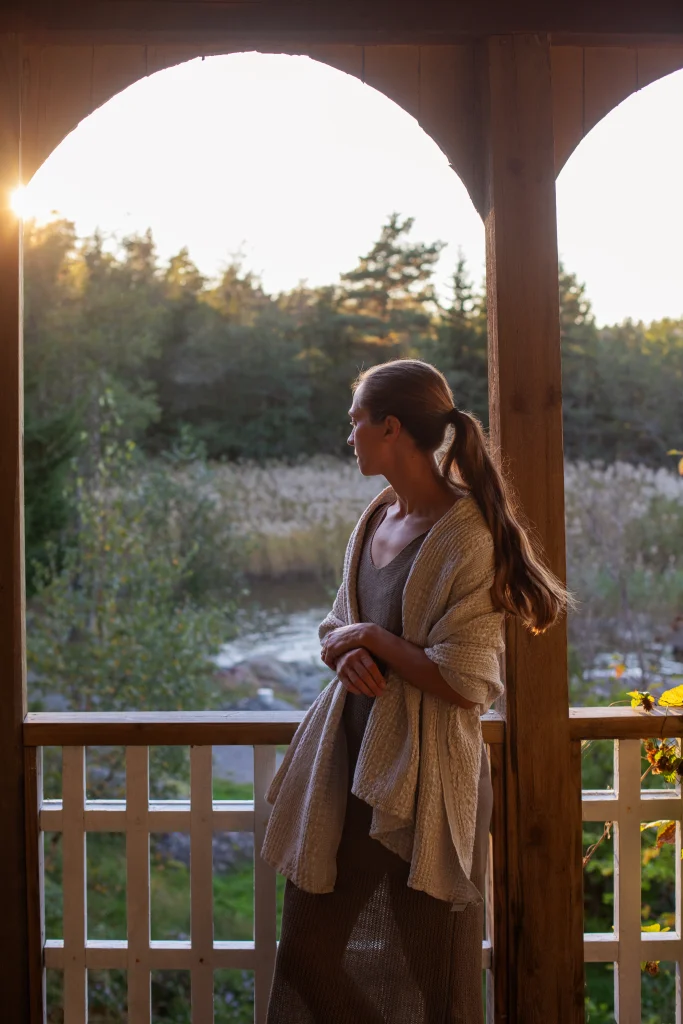
ACTIONS AND GOALS
- Our environmental management programme was granted the EcoCompass certificate in the summer of 2022. We have structured our entire business operation according to the certification criteria.
- We are among the first companies to participate in the 2035 Carbon Neutral Textile Commitment organised by the Finnish Textile & Fashion.
- We will continue monitoring our environmental footprint and instilling targetoriented action throughout the organisation.
- We will continue eco-balance calculations and the development of carbon footprint monitoring as we strive towards becoming a carbon neutral operator. Our focus is on assessing the carbon footprint of yarn producers.
- We monitor and report on amount of waste generated yearly. Our goal is to continue to discover new recycling subjects.
- Documentation according to ISO 14001 is part of our company’s quality management.
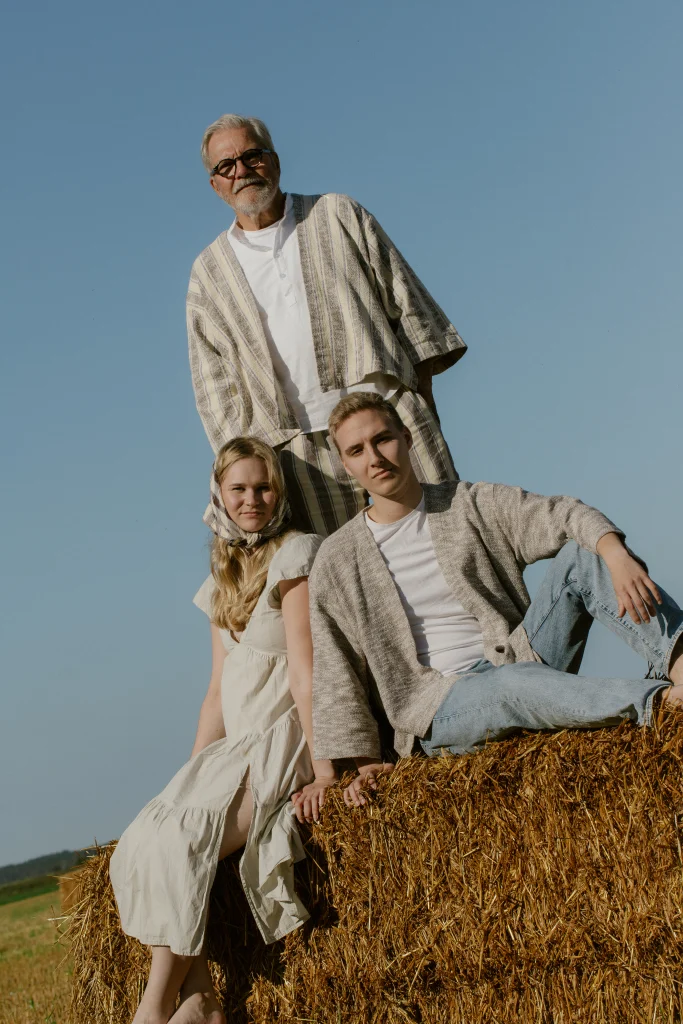
ACTION FOR A BETTER FUTURE
We want to maintain and promote local textile expertise and Finnish textile industry in order to preserve the ecological wool and linen traditions. As weavers in fourth generations, we want to pass on our skills to the next generation.
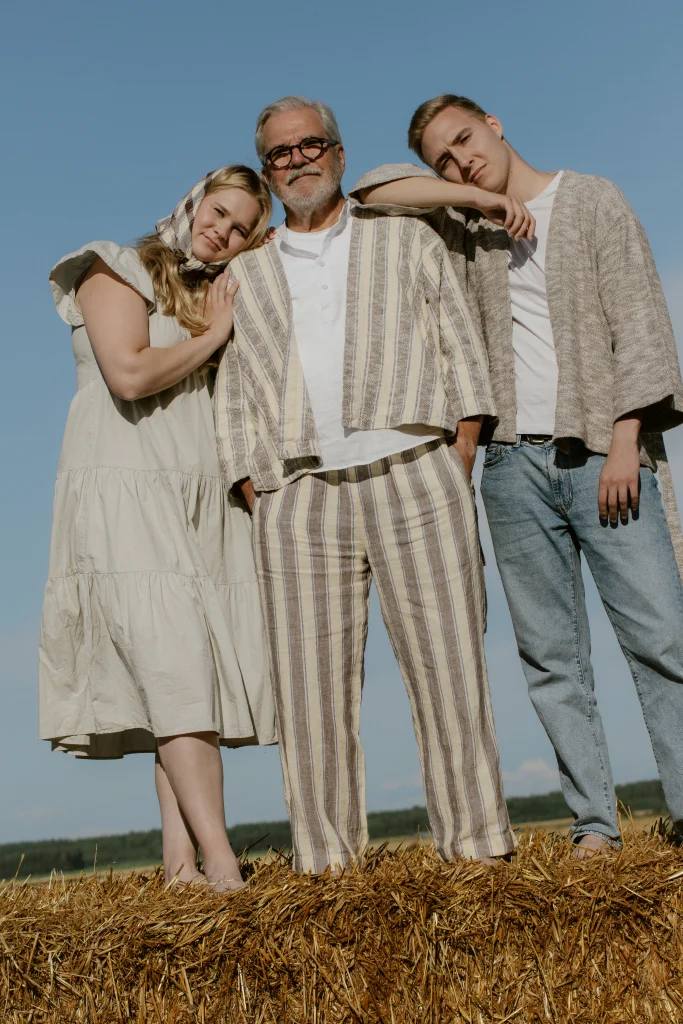
HOW WE TAKE ACTION
EDUCATING YOUNG PEOPLE
We take on the responsibility of keeping the education and training in this field going in Finland. We train weavers and factory workers with an apprenticeship contract as well as engineers at the Tampere University of Applied Sciences. We also collaborate with the Aalto University. Our collaboration includes offering textile students opportunities to learn weaving techniques at our factory.
LOOKING FOR NEW TECHNIQUES AND INNOVATIONS
As our passion is developing the best textiles in the world, we are constantly developing and looking for new techniques and innovations, be it fibres, materials or processes. For example, a few years ago we started using Tencel to replace cotton. Weaving it with linen has produced great results.
PARTICIPATION IN DEVELOPMENT OF CIRCULAR ECONOMY
We want to participate in circular economy projects and be part of developing new recycled and wood-based fibres. For example, we have participated in Aalto University’s Ioncell test weaving project as well as in other new innovative fibre projects. We follow actively the development of circular economy through our involvement in Finnish Textile and Fashion, the central organisation in this field. Esko Hjelt, owner of our company, has been for years a member of the board.
WE LEAD BY EXAMPLE
It is our responsibility to act transparently and lead by example by showing that textiles can also be manufactured responsibly.
